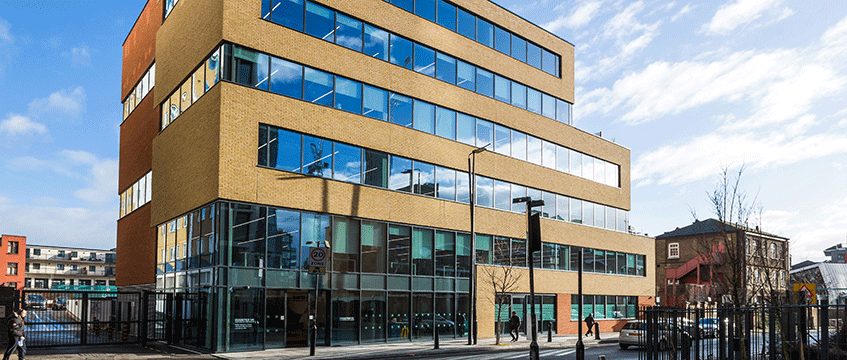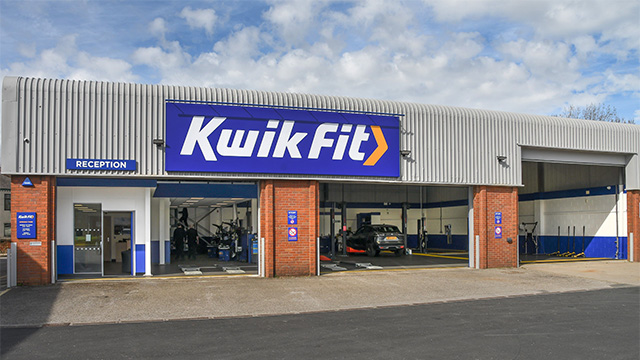Savills Investment Management plans to launch an environmental, social and governance-focused fund in anticipation of growing interest in the niche market following the coronavirus crisis.
The investment manager, which has around €20.8bn (£18.4bn) AUM, is in the early stages of approaching investors to gauge appetite for a dedicated ESG fund, which would sit alongside its pooled funds in the UK, including its flagship €1.5bn Charities Property Fund.
Harry de Ferry Foster, co-head of the UK at Savills IM and fund director for the Charities Property Fund, told EG the investment manager is ramping up its focus on ESG, food security and on-shoring in manufacturing, particularly in new green industries such as electric battery production.
“I think all of these sectors will become much more mainstream,” said de Ferry Foster, adding that ESG investments are “something we see as really growing”. “Covid-19 has only added to that,” he said.
Avocados in Norwich
Investor demand for ESG assets has steadily increased in the wider financial markets. UK investors have pumped £3.9bn into such funds since July 2017, according to fund network Calastone. This compares with just £107m in the preceding three years. During March this year, when other investment funds suffered billions of pounds in outflows stemming from Covid-19 disruption, ESG funds lost only £17m.
Savills IM aims to invest in food security through vertical farming, which could form a component of the fund. De Ferry Foster pointed to the scope to reduce the need for imports post-Brexit as a trigger for the change in this sector, on top of significant improvements in technology.
“You can grow a hundred times as much in a shed as you can on a piece of land outside, because you can layer it 10 levels high, and you’re growing 24/7 because you can control the climate as well as issues with pests,” he added.
“Much more green energy in the UK is now being produced. We could get to a stage where we’re producing our own food next to where it needs to be consumed, cutting out air and lorry miles.”
This would create a “virtuous circle”. “Think massive sheds growing avocados outside Norwich for the people of Norwich, instead of importing from Spain,” said de Ferry Foster.
Starting afresh
In the meantime, the company will continue to apply ESG principles to its existing portfolios. The Charities Property Fund, for example, has recently turned to positive screening, having previously screened for ESG-negative occupiers.
This has always included exclusions on tobacco, armaments and animal testing, and has also added businesses in gambling and fossil fuels to that list. But now the focus has turned to actively seeking out buildings “for occupiers who do good”.
Around 20% of the fund’s portfolio consists of charities, NHS organisations, health and fitness clubs, electric battery producers and recycling facilities. Last year it bought a logistics unit let to the NHS. It also counts several buildings rated “excellent” under BREEAM in its portfolio, including Diabetes UK’s headquarters in Whitechapel, E1 (pictured above).
“We think that’s a really interesting area where you can buy buildings that have something people will value more and more in the future, without necessarily paying any more money for them,” said de Ferry Foster.
“You would hope these businesses are also more sustainable, and that the income is more sustainable too, because they’re doing things that hopefully everyone wants.”
However, de Ferry Foster acknowledged the complexities in retroactively applying the relevant principles. He estimates that changing existing portfolios could potentially take up to 20 years, given that many buildings are already let.
“Starting afresh is a way to guarantee that you can do these things, which is why we think it is the best solution,” he said. “This does not mean we’ll ignore it for the rest of our funds. But it is the future, and Covid-19 will only speed it up, rather than slow it down.”
No pain, no gain
In the wider market, de Ferry Foster said overseas investors continue to show interest in student accommodation, as well as hotels and logistics.
While he reaffirmed his belief in the long-term merits of student housing, he predicted more pain ahead in the short term, with more students expected to delay their courses. “We’re going to see a real drop off in students taking space,” he said.
“The numbers are bound to be down for 12 months, which will have a knock-on [effect] on income. I don’t really see any other way round it.”
Where rent collection is concerned, de Ferry Foster said Savills IM’s funds have offered the greatest number of deferrals and arrangements to occupiers in alternatives sectors, including student accommodation, hotels, serviced apartments, gyms and health and fitness.
Collection rates from industrial and office occupiers stand at around 80% within its funds. Its logistics occupiers include Amazon, TNT and DHL.
Its retail occupiers have also stayed largely resilient, since these are mainly focused on food, discount and convenience in out-of-town locations. Among these are supermarkets including Tesco, Sainsbury’s, Waitrose, Lidl and Aldi.
Some 75% of tenants across its UK funds have paid amounts owed during lockdown, while a further 15% have agreed new payment terms. However, another 10% – which include Travelodge and Wellcome Break – “have not engaged” or have temporarily refused to pay.
“We’ll always try to find something that benefits both sides, to help each other through these times,” said de Ferry Forster. “We want to be an ethical and helpful landlord.”
To send feedback, e-mail pui-guan.man@egi.co.uk or tweet @PuiGuanM or @estatesgazette











